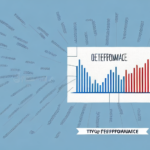Importance of Agility in Ecommerce Scaling
Ecommerce has rapidly evolved, with global sales projected to reach $6.54 trillion by 2023 according to Statista. In this dynamic environment, agility is crucial for sustaining growth and competitiveness. Being agile allows ecommerce businesses to swiftly adapt to market changes, customer demands, and emerging technologies, ensuring long-term success.
Adapting to Market Changes
Market trends can shift quickly, influenced by factors such as economic conditions, consumer preferences, and technological advancements. An agile ecommerce business can pivot its strategies in response to these changes, minimizing risks and capitalizing on new opportunities.
Data-Driven Decision Making
Utilizing data analytics helps businesses understand customer behavior, track sales performance, and identify emerging trends. For instance, Shopify reports that data-driven companies are five times more likely to make faster decisions than their competitors.
Fostering Innovation
Encouraging a culture of innovation empowers employees to explore new ideas and experiment with different approaches. This mindset of continuous improvement ensures that the business remains competitive and can swiftly implement effective solutions.
Responding to Scaling Challenges
As an ecommerce business grows, several challenges can arise, including increased website traffic, inventory management, and customer service demands. Addressing these challenges proactively is essential for seamless scaling.
Enhancing Website Infrastructure
Upgrading your website's infrastructure to handle higher traffic volumes is critical. This may involve investing in scalable cloud-based platforms that ensure your site remains responsive and secure during peak times.
Optimizing Product Listings
High-quality product listings with compelling descriptions and images enhance user experience and improve search engine rankings. Effective optimization can lead to higher conversion rates and increased sales.
Customer Service Excellence
Providing exceptional customer service builds loyalty and encourages repeat business. Implementing efficient customer support systems, such as live chat and automated responses, ensures prompt and reliable assistance.
Strategies for Maintaining Agility
Maintaining agility during scaling requires strategic planning and the adoption of flexible methodologies. Implementing these strategies helps businesses respond swiftly to changes and sustain growth.
Implementing Agile Methodologies
Agile methodologies, such as Scrum and Kanban, promote iterative development and continuous feedback. According to the Harvard Business Review, organizations using agile practices experience improved project visibility and greater team collaboration.
Investing in Automation and Technology
Automation tools can streamline repetitive tasks like order processing and inventory management, freeing up resources for strategic initiatives. Additionally, technologies like artificial intelligence (AI) and machine learning can enhance data analysis and personalized marketing efforts.
Cultivating a Culture of Innovation
A supportive environment that encourages experimentation and values creative thinking fosters innovation. This culture enables teams to develop novel solutions and adapt quickly to market shifts.
Staying Ahead of the Competition
To maintain a competitive edge, ecommerce businesses must continuously monitor market trends, enhance customer experiences, and analyze competitor strategies.
Monitoring Market Trends
Regularly tracking industry trends and consumer behavior helps businesses anticipate changes and adjust their strategies accordingly. Tools like Google Trends and market research reports provide valuable insights.
Enhancing Customer Experience
Offering a seamless and personalized shopping experience increases customer satisfaction and loyalty. Features such as mobile optimization, multiple payment options, and intuitive website navigation contribute to a positive user experience.
Competitor Analysis
Analyzing competitors' pricing, product offerings, and marketing strategies can identify opportunities for differentiation. Understanding competitors' strengths and weaknesses enables businesses to refine their own approaches and outperform rivals.
Balancing Growth and Adaptability
Achieving sustainable growth while remaining adaptable requires a balanced approach, focusing on both expanding operations and maintaining flexibility to respond to changes.
Customer Retention Strategies
Prioritizing customer retention reduces the pressure to constantly acquire new customers. Implementing loyalty programs, personalized marketing, and excellent customer service fosters long-term relationships with customers.
Leveraging Technology for Scalability
Investing in scalable technologies ensures that your ecommerce platform can handle increased demand without compromising performance. Cloud-based solutions and robust backend systems provide the necessary infrastructure to support growth.
Overcoming Agility Challenges
Scaling an ecommerce business presents various obstacles, including resource limitations, infrastructure issues, and maintaining customer satisfaction. Addressing these challenges is vital for sustaining agility.
Addressing Resource Constraints
Effectively managing resources involves optimizing workflows and prioritizing essential tasks. Utilizing project management tools and outsourcing non-core activities can help maximize efficiency.
Maintaining Customer Satisfaction
As your customer base grows, maintaining high levels of satisfaction becomes more complex. Implementing automated customer service solutions, such as chatbots, and providing comprehensive training for support teams ensures consistent and reliable service.
Essential Tactics for Sustaining Agility and Responsiveness at Scale
To sustain agility and responsiveness as your business scales, adopt essential tactics that support continuous improvement and adaptability.
Agile Methodologies
Continuously applying agile practices like sprints and stand-up meetings keeps teams aligned and responsive to changes. This structured yet flexible approach enhances productivity and project management.
Continuous Learning and Development
Investing in employee training and development ensures that your team stays updated with the latest industry trends and technologies. Encouraging continuous learning fosters a knowledgeable and adaptable workforce.
Building a Collaborative Team Culture
A collaborative team culture promotes open communication and teamwork, essential for navigating the complexities of scaling. Recognizing and rewarding team achievements reinforces a positive and supportive work environment.
Conclusion
Scaling an ecommerce business requires a strategic balance of growth and adaptability. By maintaining agility, responding effectively to challenges, and implementing robust strategies, businesses can sustain their growth and stay competitive in the ever-evolving ecommerce landscape. Embracing agile methodologies, leveraging technology, and prioritizing customer satisfaction are key to achieving long-term success in ecommerce scaling.






















